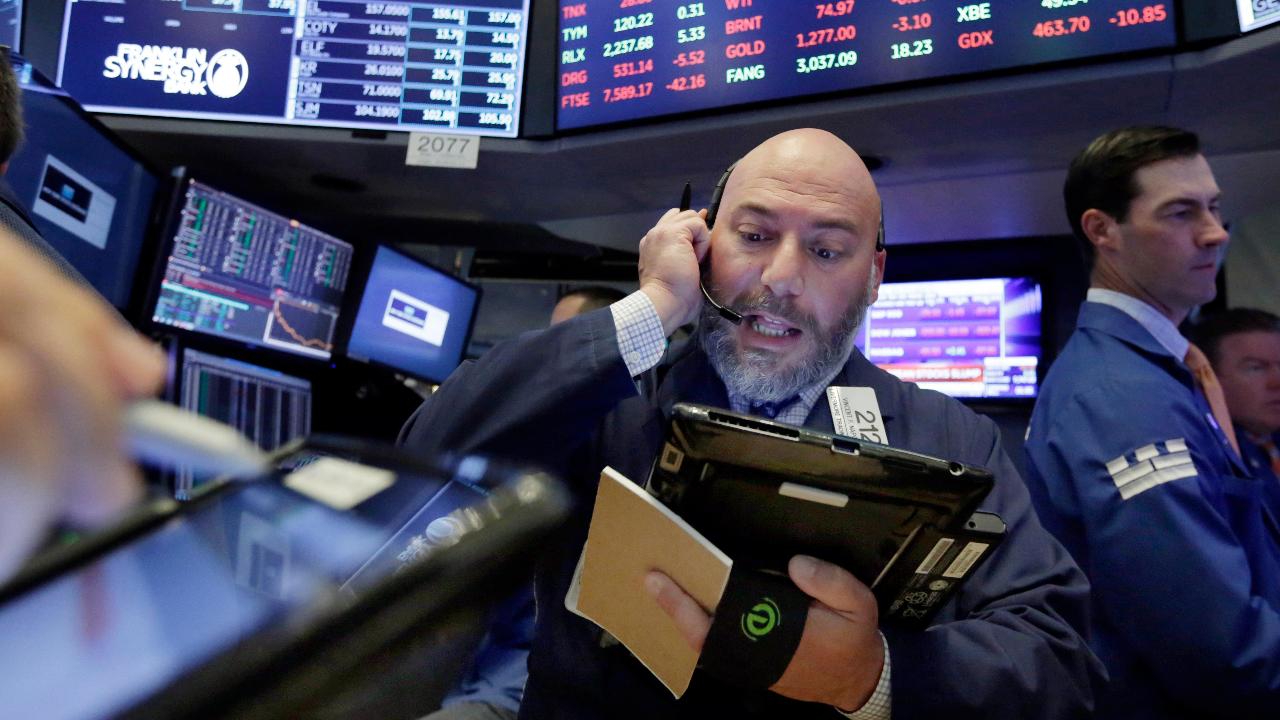Germany willing to cut tariffs on US cars, lifting automakers’ shares
Germany’s chancellor said Thursday she’s willing to back lower tariffs on U.S. auto imports as a potential European Union (EU) concession to the Trump administration – just one day after CEOs of Germany’s biggest carmakers reportedly voiced support for eliminating such tariffs entirely.
Angela Merkel said she would be ready to support lowering the tariffs, though the measure couldn’t just apply to the U.S.
"I would be ready to support negotiations on reducing tariffs but we would not be able to do this only with the U.S.," she said, as reported by Reuters, adding that singling out one country would violate World Trade Organization rules.
On Wednesday, the chief executives of prominent German auto companies – including Daimler, BMW and Volkswagen – “liked” a Trump administration proposal for both sides to reduce those tariffs to zero, according to German business news outlet Handelsblatt. The proposal was said to have been made by U.S. Ambassador to Germany Richard Grenell during a meeting at the U.S. embassy.
The EU tariff rate on all U.S. car imports is 10% while the U.S. tariff on imported European cars is 2.5%.
Auto stocks, including Ford, Fiat and General Motors, rose on the news Thursday.
| Ticker | Security | Last | Change | Change % |
|---|---|---|---|---|
| F | FORD MOTOR CO. | 13.59 | -0.21 | -1.52% |
| GM | GENERAL MOTORS CO. | 80.68 | -3.56 | -4.23% |
| FCAU | NO DATA AVAILABLE | - | - | - |
Last week, President Trump threatened to impose a 20% tariff on imports of all vehicles assembled in the EU, though he is reportedly willing to scrap those plans if the EU reduces its levies. The potential tariff would hit Germany particularly hard as cars are one of their key exports: manufacturers in the country exported more than 4.3 million vehicles in 2017.
European Commission President Jean-Claude Juncker is expected to meet with President Trump later this month to discuss trade concerns.
Trump has been vocal about the need for automakers to manufacture vehicles in the United States, and has said there are too many German cars on the roads.
The Commerce Department is currently investigating whether foreign auto imports pose a risk to national security.
Meanwhile, while tensions appear to be easing with the EU, another round of U.S. tariffs on Chinese goods are due to go into effect on Friday. The levies would be placed on $34 billion worth of goods.




















